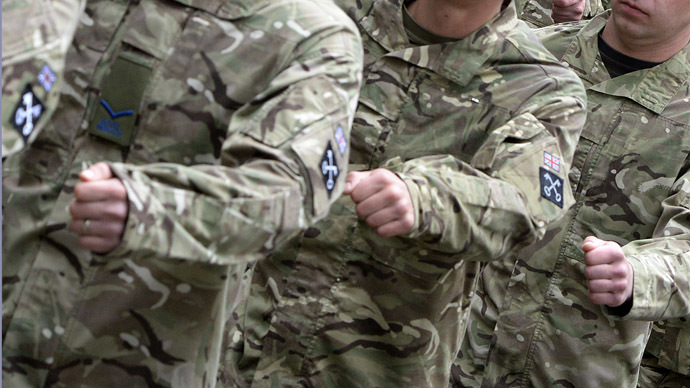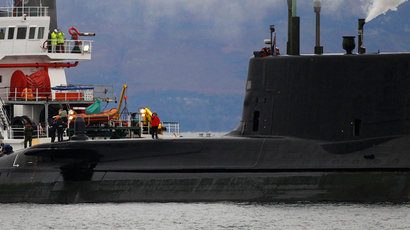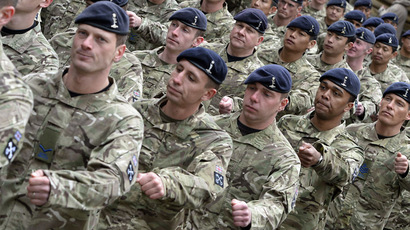Unfit sentries: One-third of UK special army guard soldiers have medical restrictions

Every third soldier assigned to professional armed guard service of British army bases have been exempted from passing standard fitness test due to being “medically downgraded,” creating a phenomenon of “medically non-deployable” soldiers on duty in UK.
The Military Provost Guard Service (MPGS) established in 1997 was originally created as a unit of the regular UK Armed Forces responsible for securing over 100 British military installations inside the UK.
The Independent has found out that, according to Ministry of Defense official statistics, 870 soldiers out of the total 2,735 MPGS servicemen are exempt from doing standard fitness tests, namely running and performing press-ups and sit-ups. The reason is staggering: soldiers have been labeled “medically downgraded,” “medically limited deployable” or simply “medically non-deployable,” due to various diseases, including heart problems, and even “encouraging” athletic injuries.
The MPGS was created – among other declared reasons, such as securing the perimeters of military bases by professionals – as a “cost-cutting” measure to relieve the military police of excess workload.
“They are less expensive in their static guarding role than would be regular troops. But that comes with penalties – one of which is that many are not up to the physical fitness standards of the fighting army,” the former commander of British forces in Afghanistan, Colonel Richard Kemp, told The Independent.
The MPGS is “more akin to a civilian security company than a military combat force,” the colonel said, so the British military command should keep this in mind when deciding which unit ought to be deployed for securing a specific installation, the MPGS or regular troops, he said.
Britain’s MoD seems not to be that much disappointed, as the ministry’s spokesman said “It would be misleading to take these figures out of context.” As the MPGS is never deployed overseas, it has “no effect on operations,” he said.
Despite having lower fitness requirements, the MPGS should pass fitness tests anyway to “ensure our military bases are safe and secure,” the spokesman said.
Next week, when UK Defense Minister Anna Soubry will appear before the Commons Defense Select Committee, she’ll be asked about the MPGS’s medically unfit servicemen, a member of the committee, MP Madeleine Moon, told The Independent.
“This seems a very high number of personnel who are non-deployable yet are on the front line defending UK military bases,” Moon said.
The problem with “medically limited deployable” soldiers is on the rise in the UK armed forces with over 20 percent of the servicemen being exempt from taking an annual fitness test. Approximately 18,000 servicemen out of 84,600 cannot be deployed on active duty due to injuries and other health problems.














